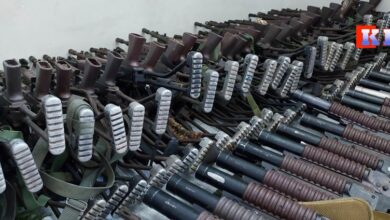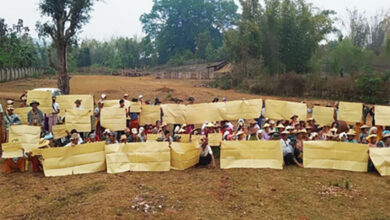AAPP accuse Burma government of harassing released monk activist

The issue of political prisoners in Burma is still critical, with arrests and government intimidation ongoing, claims a prominent activist organization.
The activist organization Assistance Association for Political Prisoners (AAPP) has accused the Burma government, led by its President Thein Sein, a former Burma Army general, of ignoring basic civil and political rights with impunity.
The current political situation in Burma, despite inching towards reform, “has seen the continuation of former political prisoners being denied fundamental freedoms,” and despite the release of 302 political prisoners in January, “it seems it is business as usual” the AAPP report said.
The AAPP report alleges that there has been increased intimidation of former political prisoners, with their freedom of movement being severely restricted.
In one example of government repression a prominent monk activist, U Gambira, who had been released in a wide-reaching government amnesty from a 63-year sentence in January, “was taken from his monastery in the middle of the night and detained after he voiced criticism of the regime.”
He was released shortly afterwards, but the AAPP says he “is still being harassed” by the regime. The story made headlines on major media networks, such as the BBC and CNN, with his detention casting doubt over whether Thein Sein’s government takes lasting political reform seriously.
In another example, a 29-year-old political activist named Arkar Bo, described how he had been tortured in prison. “The prison guards slapped me in the face. They forced me to kneel on an uneven floor littered with hard pebbles for a long time and kicked me.”
The U.N. Special Rapporteur on human rights in Burma, Tomas Ojea Quintana, who visited three political prisoners in the notorious Insein prison in Rangoon, said he was told that conditions had improved, although allegations of ill-treatment continue.
In addition, the New York-based Human Rights Watch called on the Burma government to provide outsiders access to its prisons and warned that a military culture of “recreational sadism” posed a stumbling block to nascent reforms.




